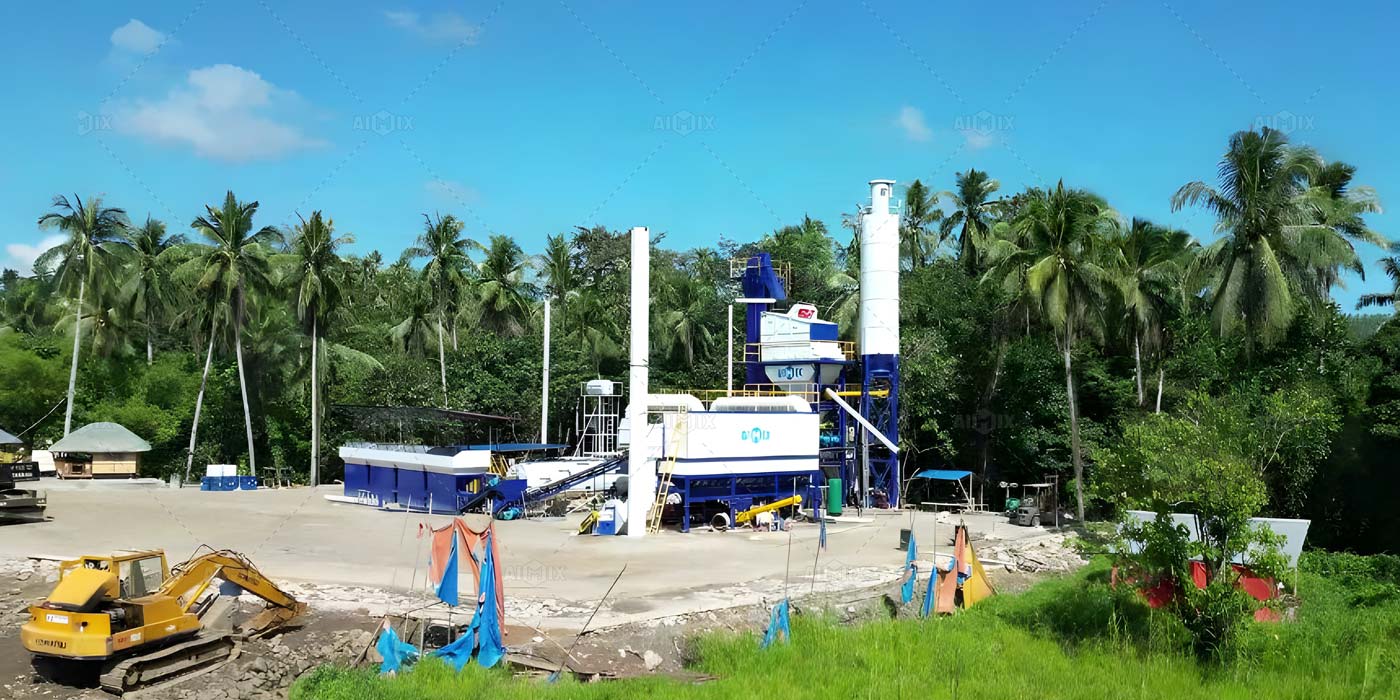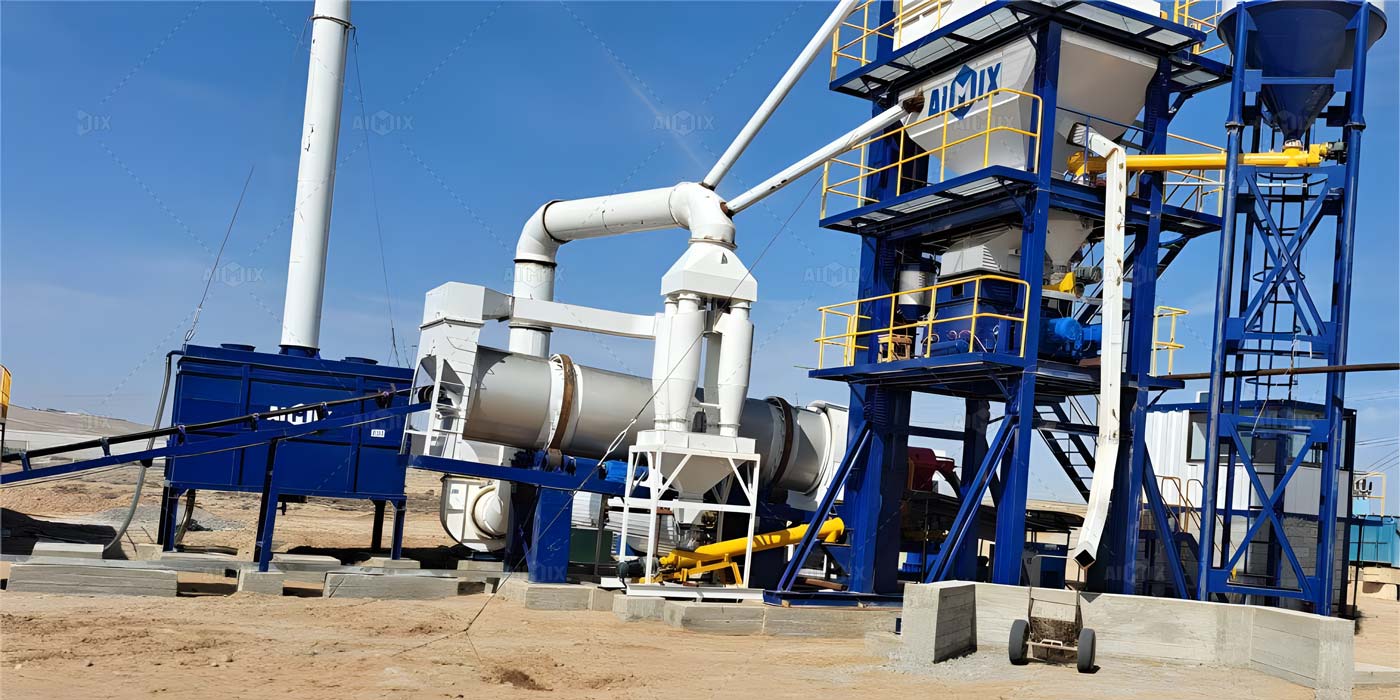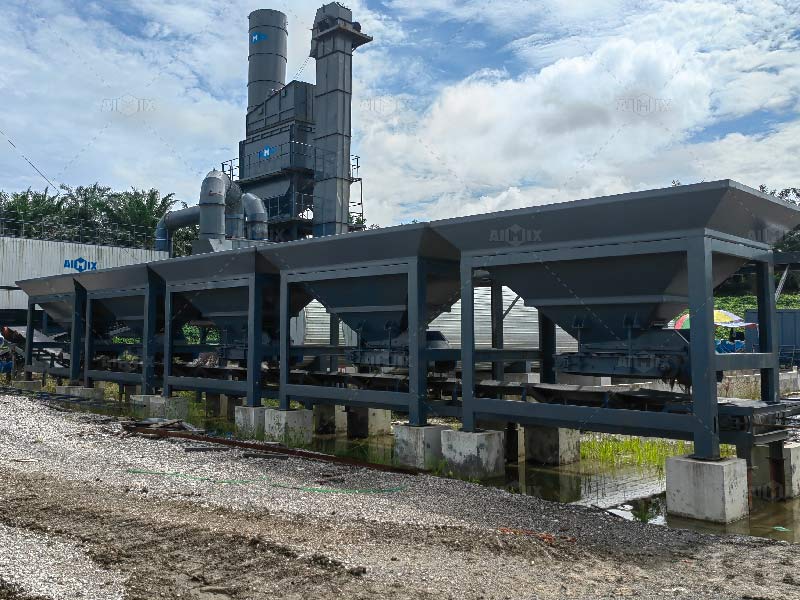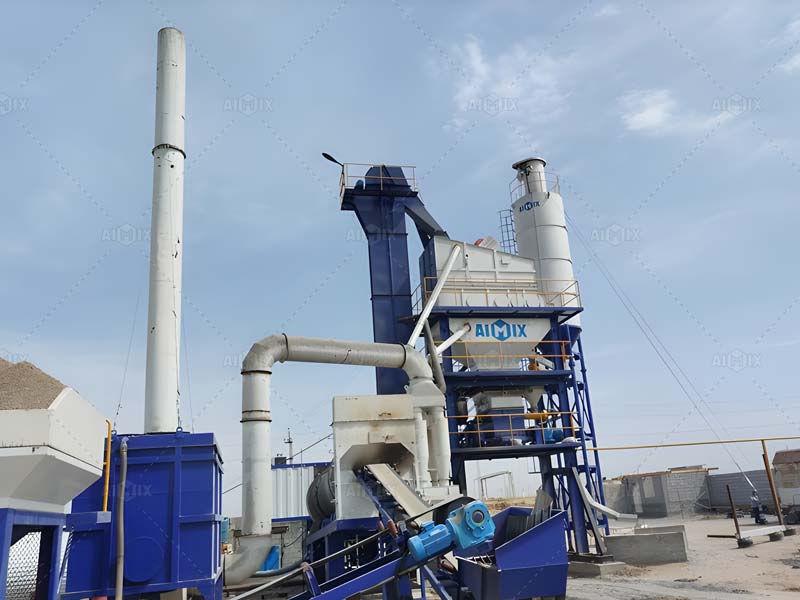In the world of road construction, choosing the right asphalt batch mix plant is crucial for project efficiency and success. Asphalt batch mix plants come in two main types: stationary and mobile. Each type offers unique benefits and features that can significantly impact your project. This article explores the key differences between stationary and mobile asphalt batch mix plants, helping you make an informed decision for your next road construction project.

Stationary Asphalt Batch Mix Plants
Stationary asphalt batch mix plants are designed for long-term, large-scale projects where the plant remains in one location throughout the project duration. They are often used for major road construction, highway projects, and large infrastructure developments. Here are some essential characteristics of stationary asphalt mixing plant:
1. High Production Capacity
Stationary asphalt batch mix plants are known for their high production capacity. They can handle large volumes of asphalt mix, making them ideal for extensive road projects. With a consistent production rate, they ensure a steady supply of asphalt to meet the demands of large-scale construction.
2. Robust Construction
These plants are built to last with heavy-duty materials and strong construction. They are designed to withstand the rigors of continuous operation and harsh environmental conditions. This durability translates to lower maintenance costs and longer operational life.
3. Advanced Technology
Stationary asphalt batch mix plants often feature advanced technology for precise control over the mixing process. This includes automated systems for weighing, batching, and mixing, which ensure high-quality asphalt production. The technology also supports efficient energy use and minimizes waste.
4. Fixed Location
As the name suggests, stationary plants are fixed at one location. This is advantageous for projects that require a stable production setup. However, it also means that relocating the plant to a new site involves significant effort and cost.

Mobile Asphalt Batch Mix Plants
Mobile asphalt batch mix plants offer a different set of benefits, making them suitable for projects with varying locations and shorter durations. These plants are designed for flexibility and ease of transport. Here’s what you need to know about mobile asphalt mixing plants:
1. Flexibility and Mobility
The primary advantage of mobile asphalt batch mix plants is their mobility. They can be transported easily from one site to another, making them ideal for projects that are spread across different locations. This flexibility allows for quick setup and relocation, reducing downtime between projects.
2. Compact Design
Mobile plants are designed to be compact and easy to transport. This design allows them to be set up in various locations, including smaller sites where space is limited. Despite their compact size, they still offer efficient asphalt production capabilities.
3. Quick Setup
Mobile asphalt batch mix plants are engineered for quick and straightforward setup. This means that once the plant arrives at the site, it can be operational in a short amount of time. This quick setup helps reduce project delays and increases overall efficiency.
4. Lower Initial Investment
Compared to stationary plants, mobile asphalt batch mix plants typically require a lower initial investment. This can be a significant advantage for smaller projects or for companies looking to reduce their upfront costs. The lower investment also makes them suitable for businesses with a more limited budget.

Choosing the Right Asphalt Batch Mix Plant for Your Project
Deciding between a stationary and a mobile asphalt batch mix plant depends on various factors related to your project requirements. Consider the following aspects when making your decision:
1. Project Scale and Duration
For large-scale, long-term projects, a stationary plant may be the better choice due to its high production capacity and durability. Conversely, for projects that require flexibility and are spread across multiple locations, a mobile plant offers the necessary mobility and ease of transport.
2. Budget Considerations
If budget constraints are a concern, a mobile asphalt batch mix plant may provide a more cost-effective solution. Its lower initial investment and reduced setup costs can help manage expenses while still delivering quality asphalt.
3. Site Constraints
Evaluate the space available at your project sites. Mobile plants are ideal for sites with limited space or where frequent relocation is required. Stationary plants are better suited for sites with ample space where a permanent setup is feasible.
4. Production Needs
Assess your production needs based on the size and scope of your project. Stationary plants offer higher production capacity and advanced technology, making them suitable for high-demand projects. Mobile plants, while more compact, can still meet production needs efficiently, especially for smaller or short-term projects.

Conclusion
Both stationary and mobile asphalt batch mix plants have their unique advantages and are suited to different types of projects. By understanding the key differences between these two types of plants, you can make a more informed decision that aligns with your project requirements. Whether you choose a stationary plant for its high capacity and durability or a mobile plant for its flexibility and lower initial investment, selecting the right asphalt batch mix plant will help ensure the success of your road construction project.
For more information on choosing the right asphalt batch mix plant, or to explore our range of products, visit AIMIX GROUP. Our team is ready to assist you in finding the perfect solution for your needs.